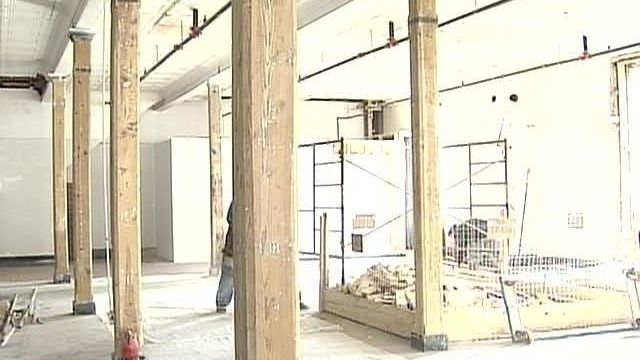Local News
Historic Renovation Will Be Environmentally Friendly
A restoration project in downtown Raleigh is seeking a commercial interior certification.
Posted — UpdatedA restoration project in downtown Raleigh is seeking a commercial interior certification.
The Heilig Levine Building, built in 1870, hopes to become certified in Leadership in Energy and Environmental Design (LEED).
“We are about preservation, and preservation is the ultimate form of recycling,” said Greg Hatem, president of Empire Properties.
The certification requires that interior space meet several energy-efficient requirements.
More than 50 percent of the interior will be constructed with recycled wood, and 75 percent of construction waste will be recycled. Interior paneling will be made out of old tobacco-barn wood from eastern North Carolina, the cabinets will be built of wheat straw, and countertops will be made of recyclable aluminum.
Daylight sensors will require less lighting, but the building must provide daylight and outside views to 90 percent of occupants.
There must be showers and storage room for bike to encourage alternate transportation. The building must also reduce faucet-water use by 80 percent, and toilet-water use 20 percent.
“It will be better space,” said Tom Darden, chief executive officer of Cherokee Investment Partners, an environmental clean-up firm based in Raleigh. The company will lease about half of the building.
Because they are an environmental clean-up firm, the company pushed for the certification before moving into the facility.
“We like pursuing this sort of thing, because we think it helps the industry develop new products and new building practices,” Darden said. “We’d like to see more builders use the type of environmental standards that LEED sets. So, that’s a lot of our motivation.”
Trying to upfit a historic building with new standards has been a challenge. It is the first effort in North Carolina to combine historic character with a state-of-the-art space.
According to developers, the LEED certification will add about $200,000 to the project. The developer believes that money can be recovered in energy efficiency.
• Credits
Copyright 2024 by Capitol Broadcasting Company. All rights reserved. This material may not be published, broadcast, rewritten or redistributed.





